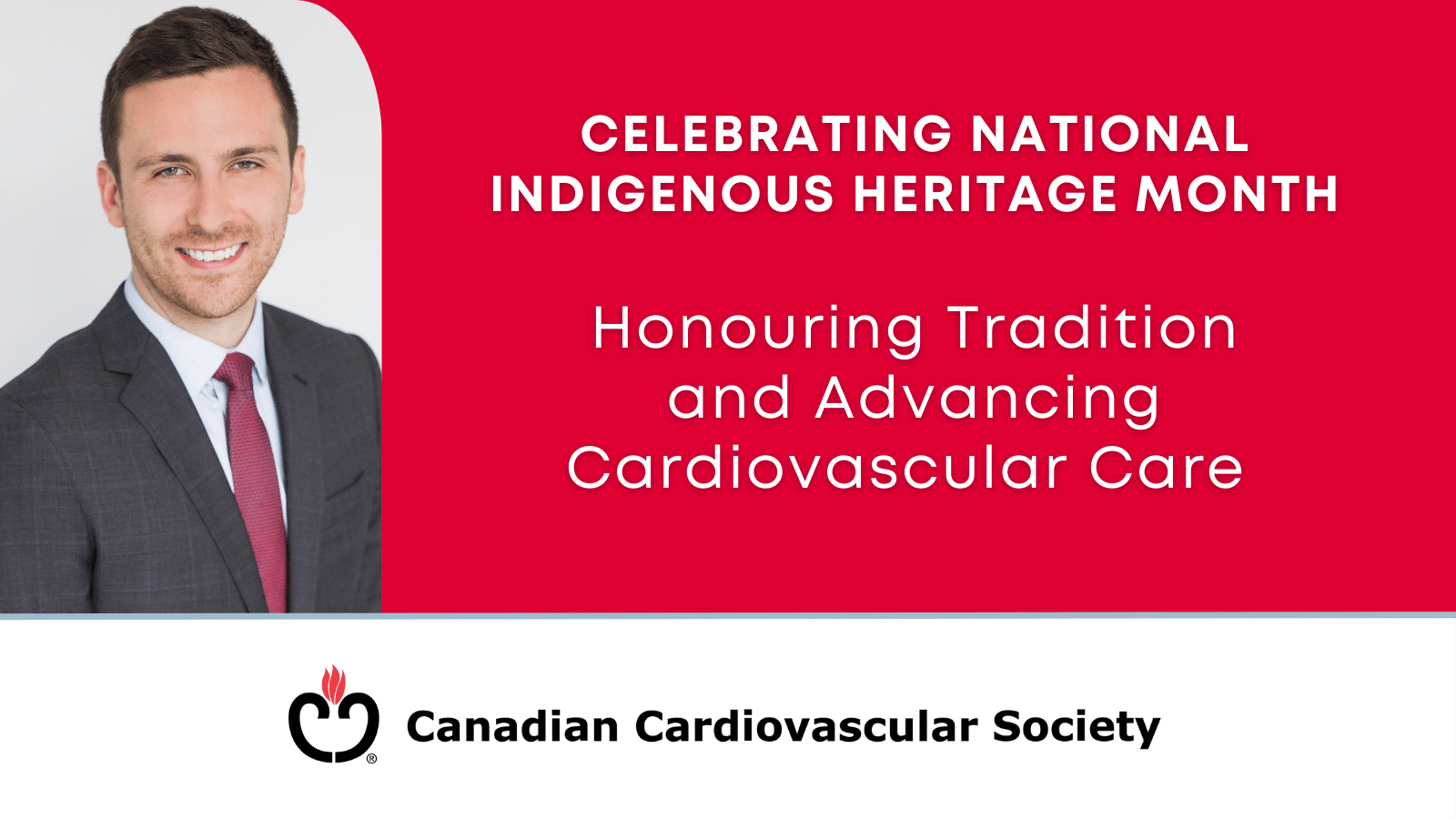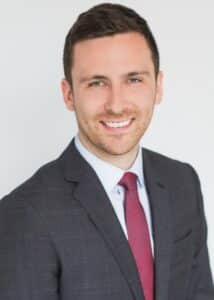

In celebration of National Indigenous History Month, we are proud to profile CCS trainee Dr. Miles Marchand, a distinguished member of the Syilx First Nation, Okanagan Indian Band, and a graduating cardiology resident whose work is making a difference in cardiovascular health for Indigenous communities.
Born and raised in Kamloops, BC, Dr. Marchand draws inspiration from his grandfather, Len Marchand, who was Canada’s first Status Indian Member of Parliament. Growing up, Dr. Marchand was instilled with the value of community service, a principle that guided him toward a career in medicine. His academic journey took him from studying Physiology at McGill University to completing his medical degree, Internal Medicine, and Cardiology training at the University of British Columbia, where he excelled as the Lead Medical Resident for both programs.
“My grandad’s dedication to our community and his historic role in Canadian politics taught me the importance of giving back,” Dr. Marchand reflects. “His legacy inspired me to pursue cardiology, where I saw the potential to make a meaningful impact on Indigenous people in Canada.”
Dr. Marchand’s Indigenous heritage profoundly influences his approach to patient care. He emphasizes the importance of human connection and storytelling, both central elements of Indigenous culture, in understanding and addressing his patients’ health needs.
“Listening to patients’ stories and understanding their backgrounds is crucial,” he explains. “Connecting with traditional Indigenous practices, like promoting diets rich in fresh fruits, vegetables, and fish, and encouraging land-based physical activities such as hunting and fishing, can significantly enhance heart health. Integrating these with biomedical approaches offers a holistic path to cardiovascular wellness.”
Dr. Marchand’s publications and speaking engagements have shed light on the impacts of colonialism on cardiovascular outcomes and provided practical strategies for delivering culturally responsive care. He has been a vocal advocate on topics like Equity, Diversity, and Inclusion (EDI) and promoting culturally safe healthcare practices.
“Healthcare providers need to understand Canada’s colonial history and its impact on Indigenous health. Simple actions like acknowledging the traditional territories where we work, taking courses in cultural humility, and engaging with local Indigenous communities can build trust and respect,” he advises. “On a broader scale, we must all advocate for improved access to culturally safe cardiovascular care and support the training of Indigenous healthcare workers.”
To aspiring Indigenous professionals, Dr. Marchand offers encouragement and a vision of self-determination. “A career in cardiology is not only rewarding and challenging but also offers the opportunity to make a significant difference in our communities’ heart health. The future of Indigenous healthcare must be led by Indigenous professionals who understand the unique needs of our people.”
Dr. Marchand is set to complete a fellowship in cardiac rehabilitation and cardiovascular prevention with a focus on Indigenous health. He is also pursuing a graduate certificate in Indigenous Public Health. His goal is to develop an Indigenized Cardiac Rehabilitation Program that incorporates traditional practices to improve access and outcomes for Indigenous patients.
“In the coming year, I’ll be performing outreach clinics in remote and reserve-based Indigenous communities across BC,” he says. “My vision is to create a program that seamlessly integrates traditional Indigenous practices with cardiac rehabilitation, fostering better health outcomes for Indigenous peoples.”
Dr. Marchand’s dedication to combining traditional knowledge with modern medicine is paving the way for a more inclusive and effective approach to cardiovascular health, one that honours and uplifts Indigenous communities.
Other News
See AllCCSA Donations Help Trainees Prep for Royal College Exam
May 10, 2022
Every year, the Canadian Cardiovascular Society Academy (CCSA) offers CCS trainees the opportunity...
CCSA Members in training2022 Call for CCS Trainee Committee Members
December 3, 2021
Call for Trainee Committee Members 2022 What does the CCS Trainee Committee do? The key directives...
Members in trainingNow available for viewing: recording of the May 27, 2021 Trainee Networking Event: Transition to Practice
June 7, 2021
View the recording here.
Members in training Networking